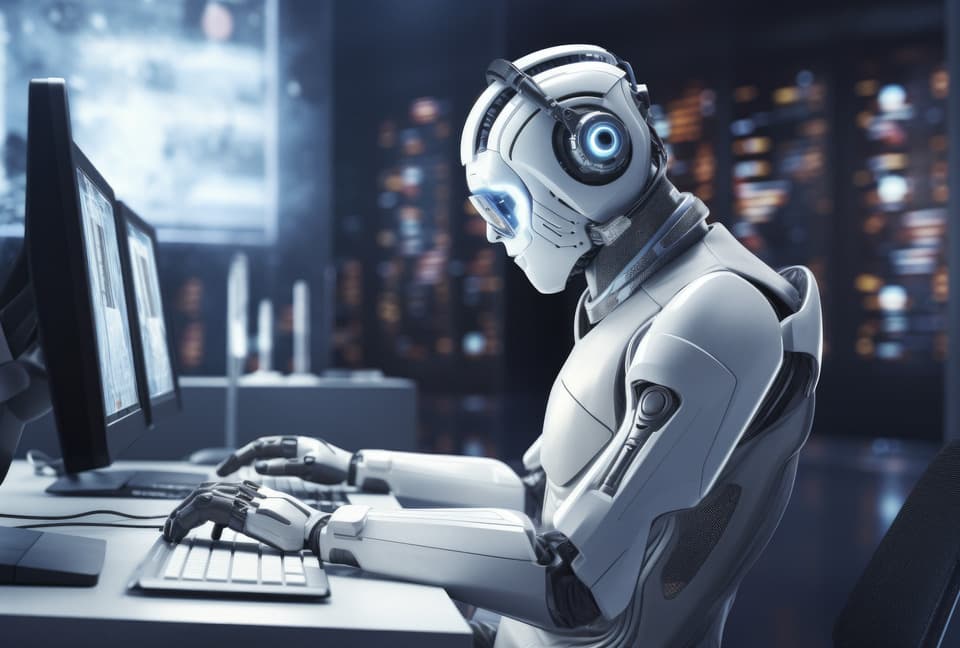In the realm of software development, code review is a critical practice that ensures code quality, consistency, and security. Traditionally, code reviews are conducted by experienced developers who meticulously inspect code changes to catch bugs, enforce coding standards, and provide feedback. However, as the complexity and volume of code increase, manual code reviews become time-consuming and prone to human error. This is where Artificial Intelligence (AI) steps in, offering a transformative approach to code review that enhances both software quality and team collaboration.
The Traditional Code Review Process
Before diving into how AI is reshaping code review, it’s essential to understand the traditional process. In a typical workflow:
- Code Submission: Developers submit their code changes through a version control system like Git.
- Reviewer Assignment: Code is assigned to one or more reviewers who are responsible for scrutinizing the changes.
- Manual Inspection: Reviewers manually inspect the code, looking for bugs, performance issues, security vulnerabilities, and adherence to coding standards.
- Feedback and Revisions: Reviewers provide feedback, and the original author makes necessary revisions before the code is merged into the main codebase.
This process, while effective, has several limitations:
- Time-Consuming: Manual reviews can take considerable time, especially for large codebases.
- Subjectivity: Review quality can vary depending on the reviewer’s experience and familiarity with the code.
- Delayed Feedback: Delays in reviews can slow down the development process, affecting overall productivity.
The Emergence of AI in Code Review
AI has the potential to address these limitations by automating and enhancing various aspects of the code review process. Here’s how AI is making a difference:
1. Automated Code Analysis
AI-powered tools like DeepCode, Codacy, and SonarQube use machine learning algorithms to analyze code automatically. These tools can:
- Detect Bugs and Vulnerabilities: AI systems can identify common coding errors, security vulnerabilities, and potential performance bottlenecks by learning from vast datasets of code.
- Enforce Coding Standards: AI tools can ensure that code adheres to predefined coding standards and best practices, making the codebase more maintainable and consistent.
For instance, DeepCode uses machine learning to understand the intent behind code changes and suggests improvements, much like a human reviewer would, but faster and with a broader perspective.
2. Intelligent Suggestions and Autofixes
One of the most significant advantages of AI in code review is its ability to provide intelligent suggestions and autofixes. When a potential issue is detected, AI tools can not only flag it but also suggest or automatically apply fixes. This capability reduces the burden on human reviewers and accelerates the review process.
For example, if a code change introduces a security vulnerability, an AI tool can suggest a secure alternative or automatically refactor the code to eliminate the vulnerability. This proactive approach ensures higher code quality and security without extensive manual intervention.
3. Continuous Code Monitoring
AI tools can continuously monitor the codebase, providing real-time feedback as developers write code. This feature, often referred to as “continuous code review,” allows developers to catch and fix issues before they become significant problems. It integrates seamlessly with popular IDEs, offering suggestions and corrections on the fly.
This continuous feedback loop not only improves code quality but also fosters a culture of constant learning and improvement among developers. By addressing issues as they arise, teams can maintain a higher standard of code throughout the development lifecycle.
4. Enhanced Collaboration and Knowledge Sharing
AI can also enhance collaboration by providing a unified platform for code review. Tools like GitHub’s CodeQL and Microsoft’s IntelliCode use AI to aggregate insights and feedback from multiple reviewers, ensuring that all perspectives are considered. This collaborative approach leads to more comprehensive reviews and better-informed decisions.
Moreover, AI tools can document common issues and solutions, creating a knowledge base that new team members can refer to. This repository of best practices and common pitfalls helps in onboarding new developers more efficiently and maintaining a consistent quality standard across the team.
Benefits of AI-Driven Code Review
1. Improved Code Quality
By leveraging vast datasets and sophisticated algorithms, AI tools can identify issues that might be overlooked by human reviewers. This thorough analysis results in higher-quality code, with fewer bugs and vulnerabilities making it to production.
2. Increased Productivity
AI-driven code reviews significantly reduce the time and effort required for manual inspections. Developers receive instant feedback, allowing them to iterate quickly and focus on more complex, value-added tasks. This efficiency boost accelerates the development cycle and improves overall productivity.
3. Consistency and Objectivity
AI tools apply coding standards and best practices uniformly, ensuring consistency across the codebase. Unlike human reviewers, who might have subjective biases or varying levels of expertise, AI provides objective and consistent reviews every time.
4. Enhanced Security
With AI’s ability to detect and mitigate security vulnerabilities early, the codebase becomes more secure. This proactive approach to security reduces the risk of breaches and ensures compliance with industry standards and regulations.
5. Better Collaboration and Learning
AI tools facilitate better collaboration by providing a common platform for feedback and knowledge sharing. They also help developers learn from their mistakes by offering contextual insights and suggestions, fostering a culture of continuous improvement.
Challenges and Considerations
Despite its numerous benefits, AI-driven code review is not without challenges:
- False Positives/Negatives: AI tools can sometimes flag non-issues or miss critical problems, necessitating human oversight.
- Adaptation and Trust: Developers may need time to adapt to AI tools and trust their suggestions.
- Integration: Integrating AI tools into existing workflows and ensuring they work seamlessly with other development tools can be challenging.
Conclusion
AI is revolutionizing the code review process, transforming it from a manual, time-consuming task into an efficient, automated, and intelligent practice. By enhancing code quality, boosting productivity, and fostering collaboration, AI-driven code review is setting new standards in software development. As these tools continue to evolve, they will undoubtedly play an even more integral role in shaping the future of programming, helping teams deliver high-quality software faster and more securely. Embracing AI in code review is not just a step towards modernization but a leap towards achieving excellence in software development.






